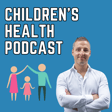
The Challenges of Parenting with Chronic Pain and Illness w/ Lauren Rose
Lauren Rose shares her experience of being a mom while suffering with chronic pain and illness for much of her life.
Connect with Lauren:
Instagram: https://www.instagram.com/ithurtstomom
Facebook: https://www.facebook.com/ithurtstomom
YouTube: https://www.youtube.com/@ithurtstomom
Spotify: https://podcasters.spotify.com/pod/show/ithurtstomom
Apple Podcasts: https://podcasts.apple.com/us/podcast/it-hurts-to-mom/id1644750334
E-mail: ithurtstomom@gmail.com
Website: https://www.ithurtstomom.com
Christian's links:
Health Consulting (book your free 15-min session with me): https://christianyordanov.com/health-consulting/
Children's health consulting (autism, ADHD, gut dysfunction etc.): https://christianyordanov.com/childrens-health-consulting/
Pregnancy preparation and recovery health consulting: https://christianyordanov.com/pregnancy-preparation-and-recovery/
Supplements I use/recommend (adults): https://christianyordanov.com/supplements-adults/
Supplements I use/recommend (children): https://christianyordanov.com/supplements-children/
Get my book Autism Wellbeing Plan: How to Get Your Child Healthy: https://amzn.to/43ah6yD
Use this link to get a discount on my Detox Workshop: https://members.christianyordanov.com/detox-workshop?coupon=CM25
